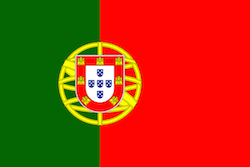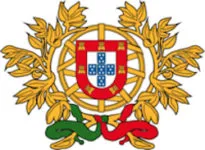Honorary Consulate of Portugal
Philadelphia Pennsylvania


The Honorary Consulate of Portugal is under the jurisdiction of the Consulate General of Portugal located in Newark, N.J. The Consul General is the head of mission. In the absence of the Consul General, the person in charge is the Chancellor.
Consul General Luis B. Sequeira or the Chancellor
Portuguese Consulate General
The Legal Center, 1 Riverfront Plaza, Main Floor, Ste. 40
Newark, NJ 07102
On a monthly basis, except for July and August, the Consulate General provides a mobile service, whereby an employee of the Consulate comes to Philadelphia to provide consular services (“Permanencias Consulares”). An advance appointment must be made via email or telephone. In order to make an appointment and confirm the day of the month the mobile service would be in Philadelphia, you may call (973) 643-4200 or consulado.newark@mne.pt. The Consul General makes a great effort to support cultural and educational opportunities for the advancement of the Portuguese language. As such, he consults with an advisory committee of local community leaders to advise him on these important issues. The local Philadelphia, Pennsylvania, member of the Cultural and Educational Advisory Committee is Joseph L. Fernandes, CPA, Esq. He may be contacted via email at philaconsulado@aol.com.
Services
1) To further the development of economic, trade, scientific and cultural relations between Portugal and the metropolitan area of Philadelphia and other parts of Pennsylvania. This means promoting commerce, investment and tourism both ways. The Consulate further promotes and facilitates scientific, academic, cultural, including its culinary cuisine, business and professional exchanges, including the promulgation of the Portuguese language. It makes arrangements for official visits of both government and business officials in both directions. It also promotes exchanges in the arts, and arranges for visiting cultural exhibits.
2) To safeguard the interests of its citizens traveling or resident in the consular district. It facilitates the issuance of passports and other official documents (and visas for others to visit Portugal), helping travelers in distress, legalizing or delivering official documents, and assisting travelers who have trouble with local law enforcement or immigration authorities. Safeguard citizens’ interests in pension, estate and inheritance matters. It also facilitates expatriate voting and assists immigrant communities. All official acts and issuance of documents are performed by the Consulate General in Newark, NJ. For further information about the types of services, you may visit the Consulate’s website at Consulate General of Portugal in Newark or the Embassy in Washington, D.C., Embassy of Portugal to the United States of America (mne.gov.pt)
History of the Philadelphia Honorary Consulate and Relations with Pennsylvania
The Consulate of Portugal was not always an honorary office. It was opened in 1788. It is the first representation of the country of Portugal to the United States. Portugal was one of three nations to recognize the United States after the American Revolution (1783). Consequently it is not strange to find the oldest American consulate in the world, in continuous service since 1795, to be in Portugal, in the Azores Islands at Ponta Delgada, São Miguel. The first Portuguese ambassador named to the post was Chevalier Cipriano Ribeiro de Freire (1790-1799). He arrived in Philadelphia in 1794. He leased Benjamin Franklin’s house during his stay in Philadelphia, and had a great relationship with President George Washington. The consulate was located at 208 South Second Street, close to the Port of the city. However the first Portuguese diplomat was an attorney by the name of Ignatius Palyat, which subsequently became Consul General from 1788-1794, moving on to the City of New York when Portugal opened their Consulate in 1795. In 1816, Chevalier Abade José (Joseph) Correia da Serra, educated in Italy and ordained a Catholic priest, became the Portuguese Ambassador living in Philadelphia. He was a botanist, founder of the Royal Academy of Sciences of Lisbon, and a member of the American Philosophical Society. His friendship with President Thomas Jefferson was such that the North Square room at Jefferson’s estate, Monticello, in Virginia, bears his name. From 1821-1829, the head of Mission also resided in Philadelphia. Living in Philadelphia was more attractive in comparison to Washington. Portuguese diplomats chose to live in the city, traveling to Washington only when necessary.
For the rest of the 19th Century, the consulate was lead by some illustrious figures of Philadelphia business and cultural life. From 1818 to 1830 and again from 1837 to 1839, the Vice-Consul was John Vaughan, a businessman in the Madeira wine trade. He is also considered the “father” of the American Philosophical Society library. From 1831 to 1836, James Gowen was the vice-Consul, an importer of fine Portuguese wines. He later became a farmer, a member of the Philadelphia Society for Promoting Agriculture, and the President of the Pennsylvania State Agricultural Society (1865). He also served as a member of Philadelphia Common (City) Council. From 1876-1899, the Consulate was lead by John Mason. He served as Vice-Consul not only Portugal but also Brazil, appointed by the Emperor of Brazil, Dom Pedro II, and by King Luis I of Portugal. He was on the original board of directors of the Philadelphia Commercial Exchange, a director of the First National Bank, a member of the Union League and a delegate of the Commercial Association of Funchal, Madeira. He was a veteran of the Civil War and the Battle of Antietam.
In the 20th century, the Consulate continued its mission in Philadelphia to support trade between Portugal and the United States, but also assist the many Portuguese immigrants that came through the Port of Philadelphia or settled in the Philadelphia metropolitan region. From 1922-1947, the Consul was Camilo Câmara. Many Portuguese immigrants returned to Portugal during the Great Depression. During the war years, Portuguese maritime traffic to the Port of Philadelphia was intense since the Philadelphia Port was one of the few being used due to war restrictions for passengers and non-military trade. Consul Câmara was instrumental in assisting the Portuguese immigrants in the area. He was one of the co-founders of the Philadelphia Portuguese Club (1935). From 1948 to 1986, José Bernadino Henriques was the Consul. He was a veteran of the United States Army, serving during World War II. A businessman in the export/import trade, he organized and co-founded Philadelphia Lodge 48 of the Portuguese Continental Union, “Bartolomeu Dias”, in March of 1939. For many years, the Consulate was located in front of Independence Mall, the location of the Liberty Bell, in the historic Bourse building. In 1982, his chancellor, Baldomiro Nunes Duarte Soares, became consul, serving until 1997. He authored the book: “50 Years of History of the Philadelphia Portuguese Club”. During his tenure the Consulate office moved to Northeast Philadelphia. From 1998 to 2005, the Consul was Carlos Marques Santos. He was also co-founder of the Portuguese American and Professional Business Association in 1980. The last honorary consul was José (Joseph) Luis Pereira Palma Fernandes, an attorney and accountant.
Pennsylvania and the greater Philadelphia region have a long relationship of commerce with the country of Portugal and its descendants/immigrants. Portuguese immigrants first came to Pennsylvania as far back as the mid 1600’s. The first Portuguese immigrants to settle in Philadelphia were the congregants of Mikvel Israel Spanish-Portuguese Synagogue, located at 44 N. 4th street, founded in 1740. This is Philadelphia’s oldest Jewish congregation, which still maintains its unchanged Sephardic traditions. Many members of the congregation served during the American Revolution and are buried in the congregation’s cemetery located at Spruce and West 8th Streets. From 1877 to 1884, the Jornal de Noticias, first Portuguese newspaper in the U.S., was produced in Erie, Pennsylvania, by two Azorean immigrants. Other Portuguese immigrants arrived in the 20th century to work in the coal mines of Northeastern Pennsylvania, ship yards along the Delaware River and for the many manufacturing mills in Philadelphia and Bethlehem. The oldest Portuguese American Club in Pennsylvania was founded in 1928 in Bethlehem. Philadelphia saw the biggest increased in Portuguese immigrants in the 1950’s through the mid 1980’s. Out of necessity, these new immigrants have established thriving professional and small businesses in such diversified industries as construction, retail, tailor shops, food products, real estate brokerage, restaurant, automobile repairs, home remodeling in the Delaware Valley and Southern New Jersey, in particularly Northeast Philadelphia. The Philadelphia Portuguese Club was founded in 1935; and the Portuguese American Rosary Society of Our Lady of Fatima in 1973 and the Portuguese American Professional and Business Association in 1980. The most well known Portuguese product imported to Pennsylvania and the United States for two centuries was Madeira Wine. Madeira originates in the Portuguese island of Madeira located 700 miles south of Portugal in the Atlantic. The island was settled by the Portuguese in 1419. It essentially became colonial America’s first wine. It is said that Francis Scott Keyes penned the Star Spangled Banner sipping from a glass of Madeira wine. George Washington’s inauguration and the signing of the Declaration of Independence were toasted with Madeira. In today’s global economy, Portugal and Pennsylvania still are trading partners with the most popular product being hardwood lumber and logs from Pennsylvania’s forests. Philadelphia has benefited from Portugal’s strong military cooperation with the United States. Since 1992, the Portuguese Navy has maintained a procurement office at the Navy International Logistics Control Office (NAVILCO) in Northeast Philadelphia. The last decade, Portugal has been exporting students to study in Philadelphia’s area universities. Many young Portuguese graduate students have found the quality of Philadelphia and Pennsylvania universities to be excellent and choose Philadelphia schools to continue their graduate studies in medicine, business and engineering. Further enhancing the educational cooperation between Portugal and local Pennsylvania universities has been the establishment of a MD/PhD Program between the Portuguese University of Minho and Jefferson Medical College, and a partnership in information and communication technologies graduate programs between Carnegie Mellon and nine Portuguese universities in Pittsburgh (http://www.cmuportugal.org).
